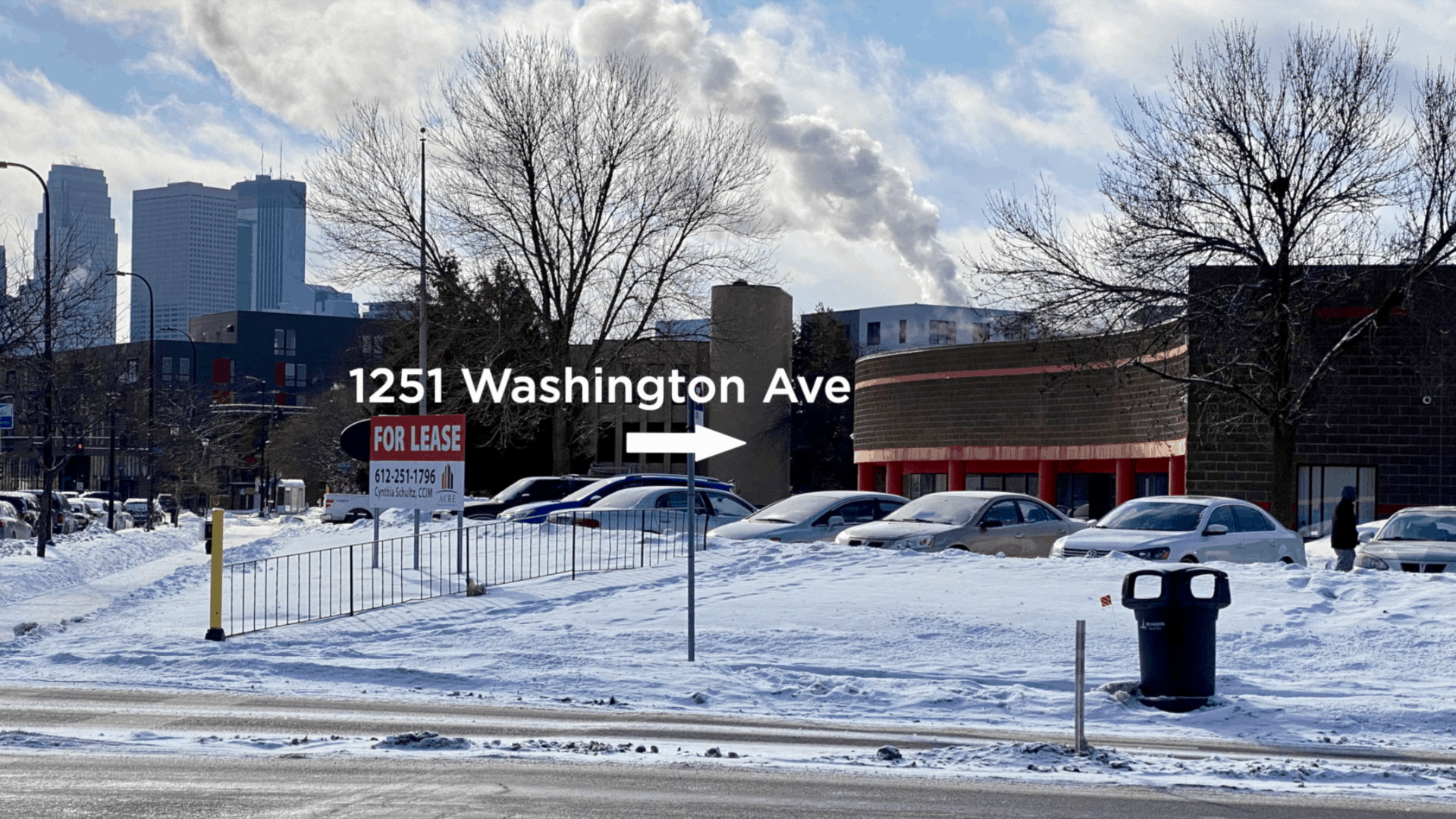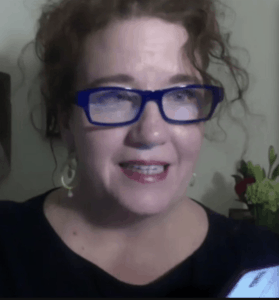
Questions Answered About New Facility To Combat Homelessness
Although construction is taking longer than anticipated, the new Avivo Village being built inside a warehouse at Washington and Plymouth Avenues is now partially open, providing a warm place to stay for 16 people who were experiencing unsheltered homelessness. When completed in the next few weeks, as many as 100 people will have private, secure “tiny houses” to stay in, as well as social services, meals and social activities provided for them.
The North Loop Neighborhood Association has signed a Good Neighbor Agreement in which Avivo vows to provide adequate staffing and security, while keeping open lines of communication with the surrounding neighborhood and holding their clients accountable for their role in being good neighbors. The NLNA has agreed to be available to field questions and concerns from neighbors and work with Avivo to get solutions.

Emily Bastian, Avivo
One of the first steps in that process was holding a public online forum February 8th with representatives from the facility as well as city council member Steve Fletcher. Below is a summary of some of the issues that were raised.
What is Avivo Village?
“We are a 24-hour low barrier shelter,” said Emily Bastian of Avivo. “And what that means is that we’re really not looking to put additional hurdles or hoops in the way of people in order to access shelter. We’re looking at making things as low barrier as possible because we know that people who are sleeping outside are often outside because of barriers that they experience. Our goal is to get them inside and provide dignity to them as humans. At Avivo, we truly believe that every single individual deserves housing because they are alive, irregardless of prior experiences, irregardless of choices, people deserve housing.”
Who will be staying there?
Street outreach workers identify people who are living in tents, cars, abandoned buildings or other places not fit for human habitation and refer them to Avivo. “It’s really about focusing on individuals who were not accessing traditional shelter,” said Emily. “And we know that there are a number of reasons that people don’t access. Some is because there just isn’t enough available. Systemically, some people don’t have access. And some of the reason is that people just don’t feel like what existed previously might have been a good fit.”

Sheila Delaney, Community Advocate
Community advocate and organizer Sheila Delaney said, “We have a great shelter system here, but there are still some things that are missing, needs that aren’t met including that it’s difficult for people that are couples if they’re not legally married, it’s very difficult for them to access family shelter. So some people stayed outside because they couldn’t be in the same shelter as their partner. Some people stayed outside because they wanted their pets with them. The other thing we heard over and over was a sense of privacy and autonomy. And that was expressed to us in a lot of different ways but that was another need we tried to meet.”
What about illegal drug use? (Asked by a neighbor on the call)
“It’s not a secret that people experiencing homelessness oftentimes turn to drugs and alcohol as a way to cope or as a way to deal with previous trauma,” said Emily, adding that she doesn’t believe the majority of their clients are in that situation. “We approach our work at Avivo–not just at Avivo Village but at our work in general–from the standpoint that everyone needs and deserves access to services, and we will meet people individually where they’re at. We focus much more on behaviors, as far as keeping people safe, than we do punitive situations. We are not going to require someone to totally discontinue use in order to move into Avivo Village. We are going to maintain rules and boundaries so that the community is able to stay safe.”
What’s the staffing situation?
Sheila said the facility has 24/7 staffing and security with 45 employees onboard so far, working a 1st, 2nd and 3rd shift. During the day, they have housing case managers, therapists, community health workers and a MNsure navigator to help ensure that clients have insurance. As they’re able to increase the number of clients, they’ll add more mental health staff, community health workers and housing stabilization workers.
How are they operating during the pandemic?
Emily said Avivo Village is adhering to CDC guidelines and the MDH toolkit for shelters, requiring clients to wear a mask when they’re not in their own individual space. Staff are required to wear masks and either goggles or a face shield. There are sanitizing stations by all the doors as well as thermal thermometers to check body temperatures. There are clear barriers on desks at the intake and admissions area and the facilities team will spray the common touch areas several times a day. And all the current clients will get COVID vaccinations later this week.
What type of social activities are available to clients?
Emily said there have already been movie nights as well as other social activities. “We do have a large lounge area which we’re almost ready to open,” she said. “There’s a big screen TV and games and books and just a big lounge area where people can be socially distanced, it’s quite large. There’s also kind of a ‘center of city.’ It’s like a center of town sort of courtyard in the facility where people can gather. And then we have picnic tables scattered throughout, eight foot long picnic tables. We have arts and crafts, and we have adult coloring books. We have several people right now that like to play Uno. We have to find a way to do some sort of socialization and recreation in a COVID-safe environment.”
How is this funded?
“We have received funding from the city, the county and the state in order to have both capital funding and service funding,” said Emily. “Beyond that funding, we’re utilizing housing support. some of you might have heard of it as GRH funding, and so we utilize housing support funding for some services as well as billable services. Housing stabilization services, targeted case management, mental health services. And finally, Avivo has received some funding from foundations and other private donors.”
Are there limits to how long someone can stay at Avivo Village?
“There isn’t a specific length of time that people can stay,” said Emily. “We look at things kind of one month at a time, and if people need more time, they can have more time. And if they need less, that is great too.”
Does this create the potential for more crime in the neighborhood?
City council member Steve Fletcher said he doesn’t think so. “I think by finding safe, secure housing, we’re actually solving for more of those problems than we’re creating,” he said, “and I wouldn’t be doing this if I didn’t think that. It really is my belief that we’re moving forward in a positive way. That doesn’t mean there won’t be problems. I’m glad we have a structure for talking about those problems and dealing with them if things do come up. But I do think this is the responsible way forward.”
How do I contact the NLNA if I have questions or concerns?
NLNA Board member Bri Sharkey-Smith has volunteered to field these questions and/or concerns and relay them to Avivo. You may write to either info@northloop.org or contact Bri directly at bpsharkey@gmail.com.
Bri is also working on a “Homelessness 101” educational Zoom with Emily and Sheila for those who want to learn more about homelessness in general. Details to come.

